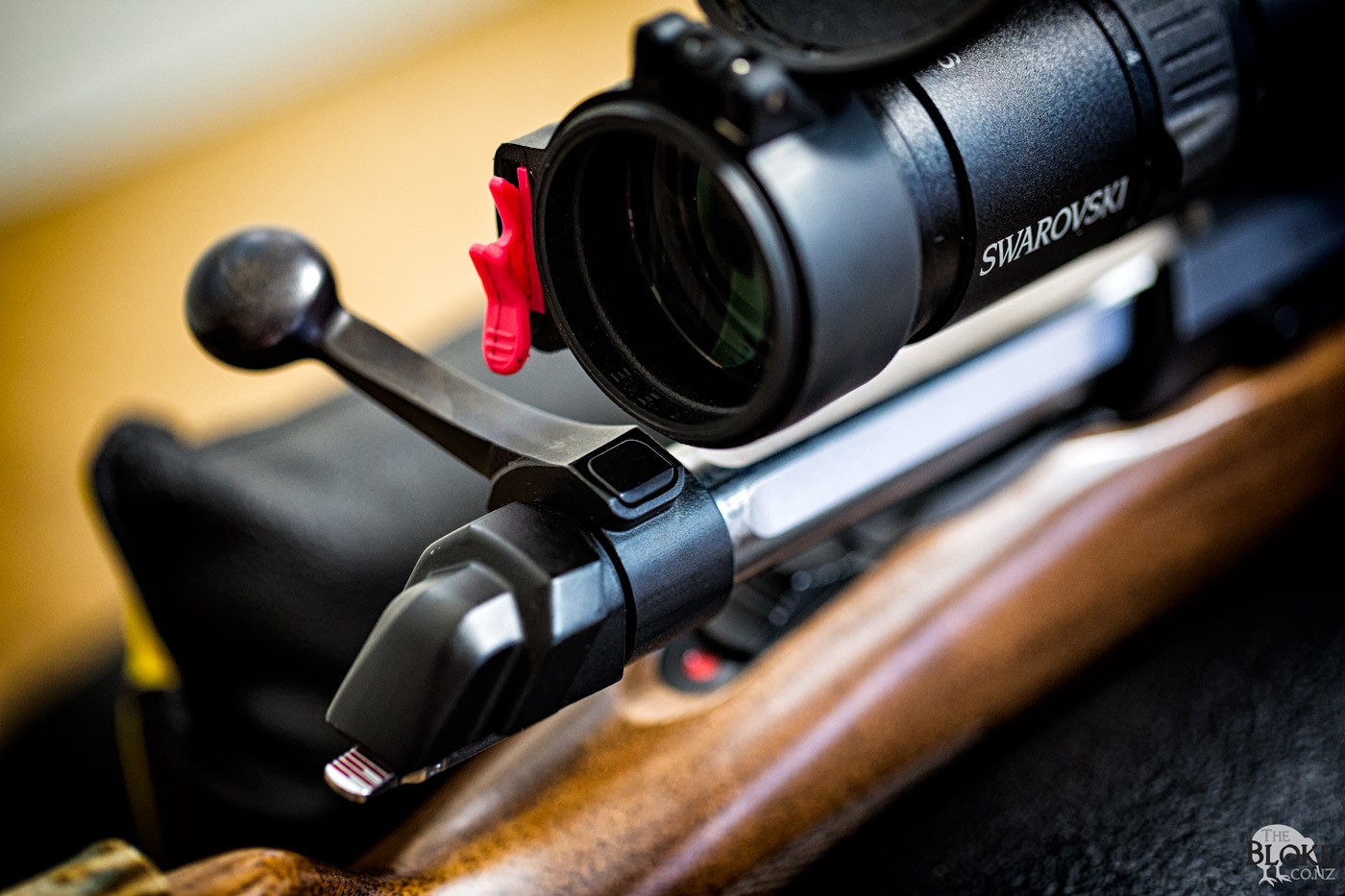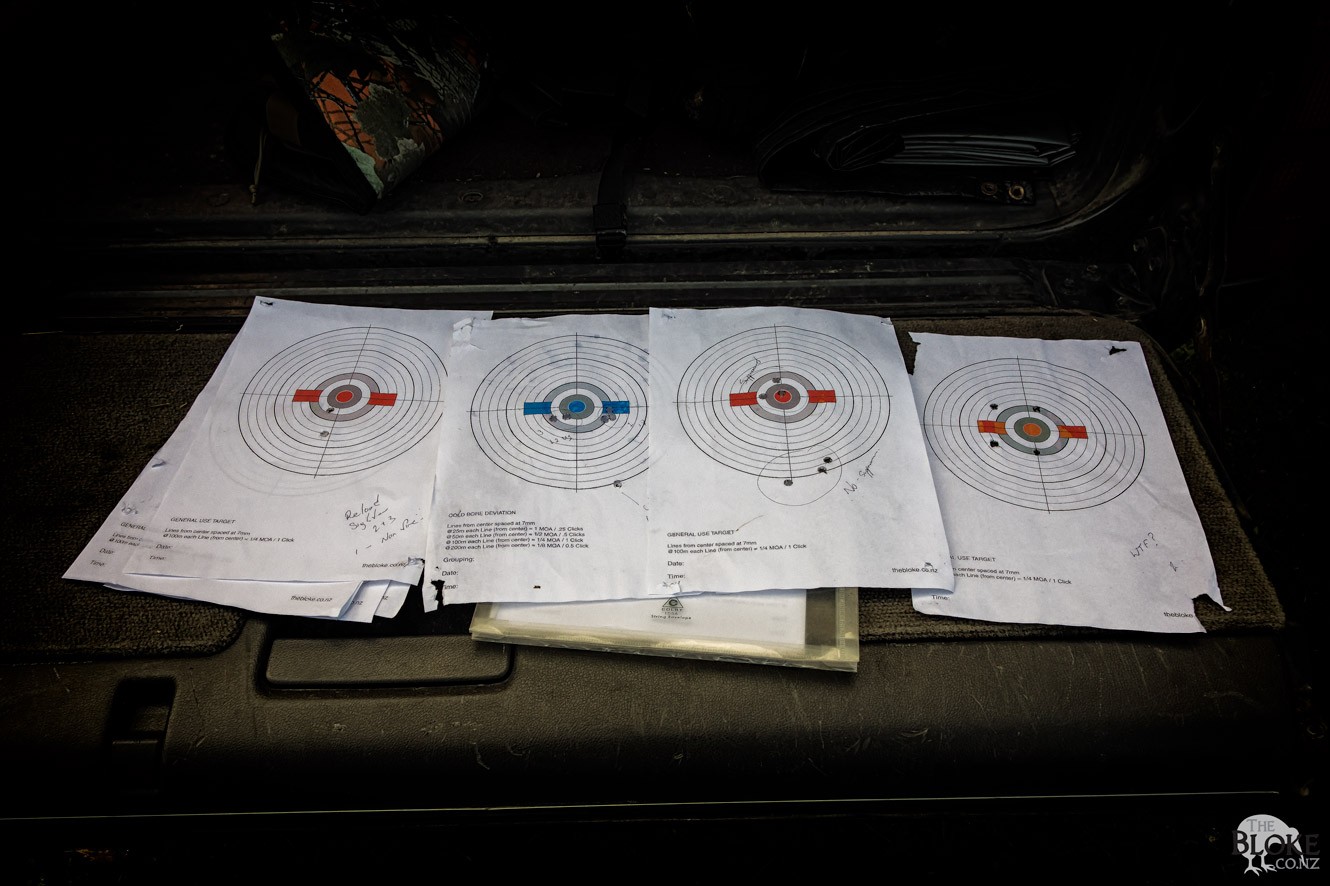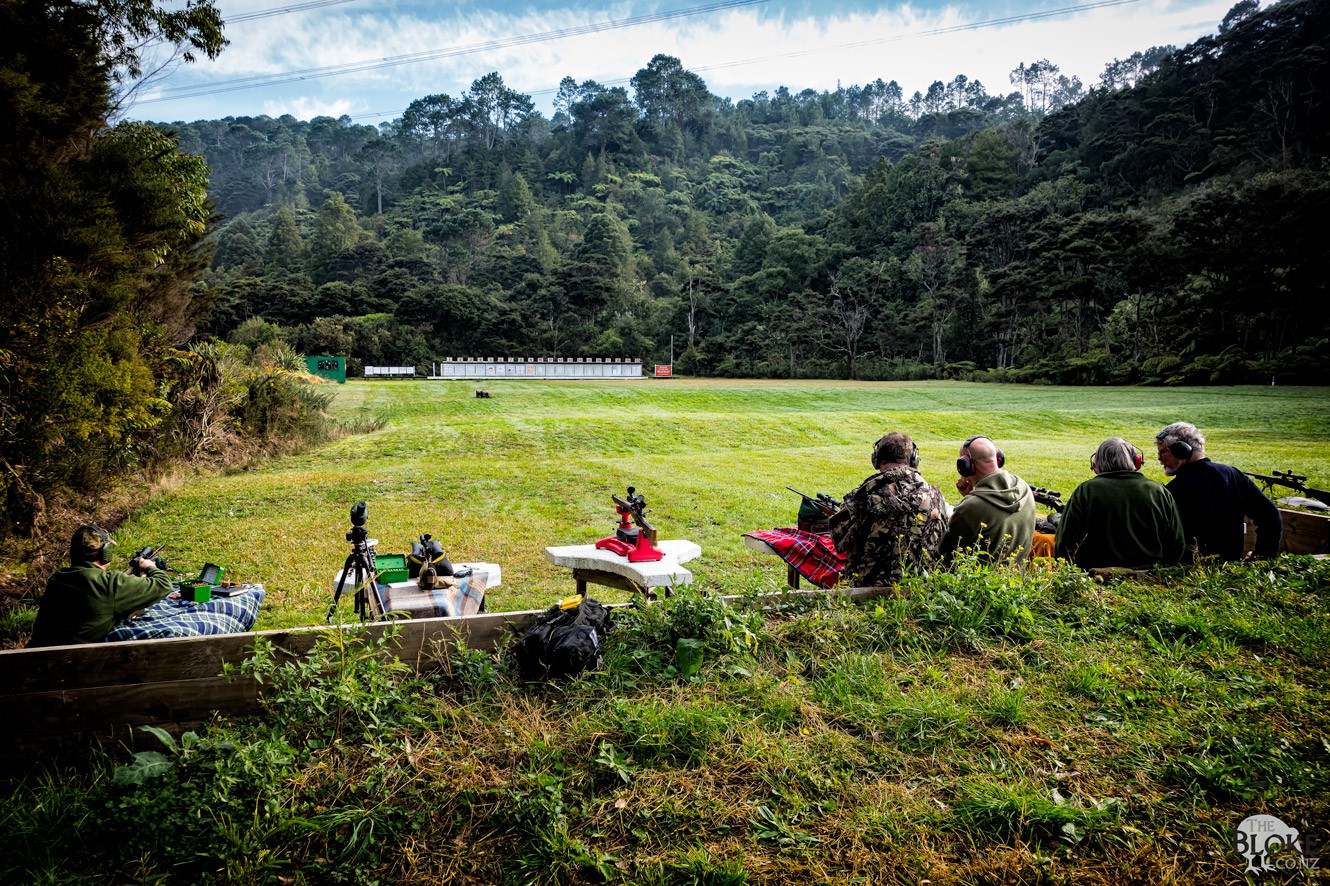Update over here – https://goodblokes.nz/new-zealand-firearms-licence/
While Air Rifles (Slug Guns), BB Rifles and Paintball guns all have their place (and I have shot them all at some point) – this first article will deal primarily with the entry point into shooting licensed firearms – the A Category Firearm.
I decided to get my firearms license primarily as a way of getting into hunting.
I was interested in learning to hunt for two main reasons – firstly, I was doing a lot of photography – especially backcountry and of animals.
Hunting seemed obvious as a complementary skill set – a way of developing my off-track navigation ability and my animal tracking and stalking skills.
Somewhere along the way, I got sidetracked by pistol shooting – but that’s another article. I am not going to much into the ‘politics’ of firearm ownership – apart from saying that I don’t personally believe it’s a right to own a firearm in NZ, it’s a privilege. Shooting & Hunting can be both fun and rewarding and I have no problem going through the process to prove that I am a fit and proper person worthy of owning a gun.

Essentially, the A Category is for all firearms that do not fall into the other, more controlled categories requiring additional checks and security.
This covers the majority of firearms that you will find in New Zealand – all the bolt action rifles, and the majority of the shotguns and semi-automatic rifles.
It doesn’t include Pistols (B Category) or MSSA – Military Style Semi-Automatics (E Category) or anything Fully Auto (C Category and illegal to shoot as a civilian). No – you will not get to shoot a machine gun in New Zealand.
Most hunting rifles and target rifles will fit into the A Category. It’s the one you need to get before you can get additional endorsements (B,C,D,E,F).
I currently own two A Category Rifles – a Browning X-Bolt in 7mm08 (my hunting rifle) and a Remington 700 SPS Varmint in .308 (my target rifle).
For most people – all they are going to be after is an A category firearm. For that, you need to apply for a New Zealand Firearms License.

“If you fail this test, you probably shouldn’t be handling a firearm.”
The process of applying for a firearms license is relatively straight forward.
Be 16 or older
Download a copy of the Arms Code. Read it. Learn it.
It’s all very straight forward and lays out the expectations and requirements in owning and using a firearm, as well as a pile of really good advice for safe handling.
Go through the Firearms Safety Lecture and test.
I am not going to earn any friends when I say this – but the particular lecture and test I went to (and I hope they are all not like this) was a joke. Right from the start, the presenters were deriding the test itself and essentially pointed out that they were there to ensure to passed by helping out with the answers.
Questions like this:
If alcohol is to be drunk when firearms are present, when is it appropriate to do so?
- immediately before leaving on a hunting trip.
- to celebrate the bagging of a game animal in the field.
- after firearms have been safely stored away
Seriously. If you get this wrong. Do not pick up a firearm. Ever.
Please understand, this is in no way a difficult test. Much like a drivers license test – some of the questions have answers where more than one ‘could be argued as correct’ – but there is only one correct answer and it will be written in the arms code. So learn it. No issues then.
If you fail this test, you probably shouldn’t be handling a firearm. So the notion of watching someone who had failed the test twice previously, being helped in an attempt to pass it the third time, kinda gave me the shits. That person now potentially owns a firearm.
This test isn’t hard and the lecture really just repeats everything in the Arms Code. Contact your local Arms Office to find out when the next one is.
Fill in Application, pay fee, collect the required documents, submit
A copy of the application form is at the back of the Arms Code, or you can download it here. Fill it out and take it to the Post Shop. Pay the fee ($126.50 last time I checked). While you are there, get some new passport photos done. Then head off to the Police Station with the following:
- your application form
- proof that you have completed the safety course
- two recent passport style photos
- three documents that prove your identity (passport, birth certificate, driver licence, photo ID, credit card/bank card)
- contact details of two character referees. One referee must be your spouse or next of kin, the other must be someone who is over 20 years old and not related to you
- PostShop receipt for fees
Sort your security
Once your application has been lodged, the Arms Officer will get in contact to organise an interview. In the meantime, sort out your security.
If you want to own firearms, you need to be able to show that you have a secure way of storing them. Don’t take the piss here. Firearms have the potential to be a dangerous item – so make sure unwanted/untrained hands have no way of getting hold of them.
I am in the process of writing a separate article about this – but basically, having done it, I would recommend this – get yourself a firearm safe and bigger than you think you will need.
This will be checked when the Arms Officer Visits.
The Arms Officer Visit
An Arms Officer will organise both you and your referees. If you are smart, you will organise your referees to be there at the same time so they can all be ticked off at once. If you nominate a referee outside of the Arm’s Officers Area (i.e. Auckland, North Shore) – then the process will take a lot longer, as all the paperwork needs to travel from one place to another, back again and so on.
The interview, again, is very simple and very easy. The Arm’s Officer (mine was an extremely nice chap) is profiling you, basically – determining if they believe you are a person who is going look after and respect firearms ownership. They are not there to fail you. Be honest. It’s the police – they know about any history anyhow.
“Do I drink? Yes. Like many people, I enjoy the odd glass or two of wine with my dinner. Do I binge drink regularly and develop psychotic tendencies? No. No, I don’t.” Simple.
Completion and issuing
Once all this is done, the Arms Officer writes their report, it all heads down to Wellington and gets processed. You are notified if you have been issued a firearms license and you are now free to purchase and use A Category Firearms. Congratulations!

“It is a lot of fun and I get to pick the brains of much more experienced shooters and hunters than me.”
After you have your firearms license
Though not required, I strongly recommend, especially if you are planning on going Hunting, is attend a New Zealand Deerstalkers Association HUNTS Course.
I decided to attend one while still in the process of getting my firearms license. This was mainly a timing thing.
By attending the course, you get a firm grounding on safe handling and operation of a firearm, as well as getting to tap into the huge amount of experience that the guys putting the course on have.
I signed up to the North Auckland Deerstalkers 1 and since doing the course I head down there on most range days to practice.
This is the other thing I strongly encourage you to do – get down to a range regularly and practise your shooting!
If you are lucky enough to have land where you can just shoot whenever you want, well, well done, I am jealous – for the rest of us – like any skill, it’s important that we stay proficient. This means, for hunters, that when we take a shot on an animal – we know that both ourselves and our firearm is going to work as intended.
Like me though – there is also a good chance you are going to get hooked on the shooting itself and lets face it – it’s fun!
When I go out hunting, I may fire no shots, or hopefully, only need to fire one. However, I am picking some guys out there also really want to shoot the gun regardless (as the amount of shot up signposts would indicate). This isn’t a problem – just come down to a range, and you can spend a day pulling the trigger. Last time I was out I got to fire off 100 rounds of .308 and 7mm08. It is a lot of fun and I get to pick the brains of much more experienced shooters and hunters than me. This means when you are out hunting the excitement of something that goes BANG! isn’t going to contribute to your buck fever.
“I encourage you, good or bad, to be honest.”
If you are asked to be a referee
Here’s another point that might be a bit contentious… but it’s important.
If you are asked. Say yes. If you would honestly be uncomfortable with this person have a firearm, say so. When you are interviewed by the Arms Officer, it’s done privately. In my case, I was asked to leave the house while the Arms Officer spoke to my referee.
If you say something the gives the Arms Officer cause to not want to issue a firearms office, this will not ever, in any way be disclosed to the applicant.
I encourage you, good or bad, to be honest. That is the point of this step in the process.
If the person applying simply finds someone to say nice things about them, well, that’s one of the way that people get firearms licenses they shouldn’t have.
Even though at the time my referee didn’t really understand why I would want to go hunting (they basically eat no meat), they were a good genuine character witness. If you have to think hard about who is going to say something ‘safe’ about you – you probably need to also ask if you really should be getting a gun.
Owning firearms is a lot of fun and it is great to be able to feed your family with meat you have caught yourself, but owning a firearm also brings with it serious responsibilities.
I also ended up rebuilding their website and now edit the newsletter – do come say hello! ↩

